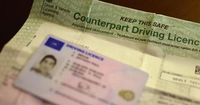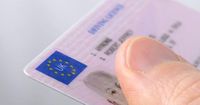The DVLA has issued significant warnings for drivers concerning the potential need to retake driving assessments if they possess certain medical conditions. This alert emphasizes the authority's role in ensuring road safety by examining the driving abilities of individuals who may not meet the necessary standards due to health reasons.
Matt Fieldhouse, the Group Managing Director and Accessible Car Expert at Mobility in Motion, voiced his concerns following these announcements. He stated, "The DVLA may ask you to visit a Driving Assessment Centre for a review of your driving skills and abilities, which is not a pass/fail test but an opportunity for honest feedback and advice." This suggests the DVLA aims to provide support rather than simply enforce compliance.
Drivers holding licenses must be aware of how medical conditions can impact their driving eligibility. According to the official UK Government website, certain factors prompt the DVLA to assess driving qualifications.
Firstly, if a doctor advises individuals to cease driving for three months or more, this raises immediate concerns. Health conditions affecting the ability to drive safely for extended periods, or failing to meet necessary driving standards due to medical issues, also trigger the need for re-evaluation.
Once the DVLA is made aware of such medical circumstances, motorists may find themselves undergoing various assessments. Experts at Age UK explained, "If this assessment shows your medical condition makes it unsafe for you to drive, the DVLA can tell you to stop driving until it improves." Here, the emphasis is on safety and the responsibility of drivers to inform the DVLA when their health impacts their ability to drive.
Following the consultation, those affected by these rulings will require reapplication for their licenses. The DVLA has detailed the reapplication process clearly, stating, "To reapply, fill in the form for your medical condition and a D1 application form, and send them to DVLA." This streamlines the return to licensure for those who have regained the ability to drive safely.
To reinforce this process, Matt Fieldhouse added, "Once you have a clearer picture of your situation and driving with adaptations, it’s time to choose the right options for you." Receiving guidance on the necessary vehicle adaptations and ensuring vehicles suit individual needs can significantly aid drivers with disabilities. Ensuring compatibility with vehicles, exploring costs and funding options, and receiving demonstrations can empower drivers to regain independence.
It is estimated there are approximately 1.2 million drivers holding Blue Badges, indicating many could be affected by these requirements. Driving not only provides freedom of movement but also shields many from the uncertainties of public transportation.
After submitting the necessary medical information to the DVLA, individuals may face varied paths depending on their circumstances. Some may be able to continue driving pending reassessment, especially if advised by their doctors. The DVLA will typically issue communications detailing any waiting periods or steps for reapplication.
Notably, the DVLA maintains strict protocols surrounding license approvals and revocations. If officials discover unsafe driving capability based on health assessments, the agency holds the power to revoke driving privileges. This creates potential obstacles for drivers reluctant to yield their licenses voluntarily.
The DVLA emphasizes the importance of stepping forward with medical disclosures before any enforcement action is taken. The penalty for failing to communicate deteriorated health can lead to forced license surrender, complicate reapplication processes, and extend periods without driving capabilities.
Further complicati the situation is the stipulation surrounding high-risk offenders and those previously disqualified. The DVLA clarifies, "You can also reapply if your application is less than a year old, your last licence wasn’t revoked or refused for medical reasons, you’re not currently disqualified, or you weren’t disqualified as a high-risk offender on or after June 1st, 2013." This offers some avenues for drivers who previously navigated difficulties with maintaining driving rights.
Overall, the message is clear: maintaining communication with the DVLA and adhering to regulations can pave the way back to safe driving independence. Routine assessments should be welcomed as proactive measures to protect not only the drivers but also everyone sharing the road.
The DVLA's guiding principle remains consistent: prioritizing public safety through the enforcement of stringent medical standards for driving eligibility. The prospect of necessary assessments may bring trepidation, but they serve as important benchmarks for ensuring safe and responsible driving.






